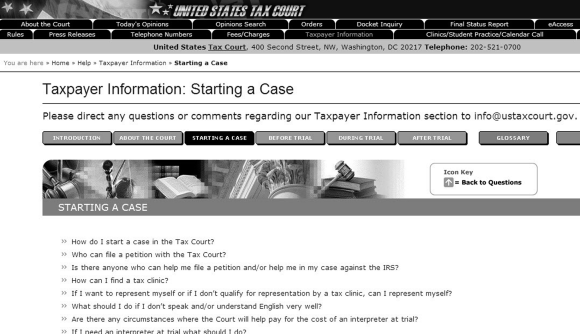Original Jurisdiction Courts
Original jurisdiction courts include the Tax Court, the Court of Federal Claims, and U.S. district courts. These are the courts where the taxpayer may appeal an IRS audit or IRS administrative decision on an audit.
Encourage clients to use the Tax Court to litigate an IRS audit adjustment in order to avoid prepaying the amount of taxes in dispute. Besides not having jury trials, the Tax Court has unique rules to expedite the court's process, such as requiring the taxpayer and the IRS to work together to establish the facts. Although the Tax Court is located in Washington, D.C., judicial hearings are held in several major cities for brief times during the year.
Expect a Tax Court case to involve only a single judge, who submits an opinion to the chief judge. On rare occasions, an “en banc” decision occurs, which involves a review by all 19 of the Tax Court judges for an important, novel, or unusual tax issue. The Tax Court's website reprints its recent decisions, as well as providing the Tax Court's rules of practice and other valuable information, as shown in Exhibit 5-14.
Exhibit 5-14 The Tax Court's Process

Differentiate two types of Tax Court cases: regular and memorandum. A regular decision (published in the United States Tax Court Reports, or TC) is when the Tax Court's chief judge decides that a case is announcing a new principle in the law. A ...
Get Accounting and Auditing Research and Databases: Practitioner's Desk Reference now with the O’Reilly learning platform.
O’Reilly members experience books, live events, courses curated by job role, and more from O’Reilly and nearly 200 top publishers.

